- Home
- Parnell Hall
SW02 - The Anonymous Client Page 15
SW02 - The Anonymous Client Read online
Page 15
“Yes, Your Honor,” Fitzpatrick said. “Now, Officer Sullivan, you say you found a man sitting in the apartment?”
“That’s right.”
“Did you by any chance identify the gentleman in question?”
“I did.”
“And who was he?”
“His name is Steve Winslow.”
“Steve Winslow? I see. And did you have a conversation with this Mr. Winslow?”
“I did.”
“Perhaps ask him what he was doing there?”
“That’s right.”
“And did he make any explanation for his presence?”
“He did not.”
Fitzpatrick raised his eyebrows incredulously. “You mean he refused to explain his presence in the apartment of a murdered man?”
“Objection,” Dirkson said. “Argumentative, assuming facts not in evidence, and in effect already asked and answered.”
“Sustained.”
Fitzpatrick smiled broadly and shook his head. “Well, well. And what did you do with this individual?”
“I held him until homicide arrived.”
“And turned him over to them?”
“That is correct.”
“And who was the officer to whom you turned him over?”
“Sergeant Stams.”
“You held this Mr. Winslow in the decedent’s apartment until homicide arrived?”
“Not in that apartment, no. My partner stayed there. I held him in custody in the landlady’s apartment downstairs.”
“Until such time as you turned him over to Sergeant Stams?”
“Actually, until Sergeant Stams was finished with him and he was released.”
“Until he was released?” Fitzpatrick managed to convey the impression that Sullivan had just confessed to the most heinous of crimes. “You’re telling me this man found at the scene of the crime was released?”
“Yes, sir.”
“He was not taken to police headquarters?”
“No, sir.”
“He was questioned at the scene of the crime?”
“By Sergeant Stams, yes.”
“And you were present for the questioning.”
“That’s right.”
“Did you have any other dealings with this gentleman before he was released?”
“Yes, sir.”
“And what were those dealings?”
“I searched him.”
“You searched him?”
“Yes, sir.”
“For what?”
Sullivan shrugged. “For whatever I might find.”
“At who’s request did you search him?”
Sullivan hesitated.
“Well?”
“Well, actually, I searched him twice.”
Fitzpatrick stared at him. “Twice?”
“Yes.”
“Why did you search him twice?”
Sullivan shifted his position on the witness stand. “Well, you see, he asked to be searched.”
“Who did?”
“Steve Winslow.”
“You mean the man himself asked to be searched?”
“That’s right.”
“And so you accommodated him?”
“Well, it seemed a good idea at the time.”
“You wanted to see if he had any evidence on him that might incriminate him in this murder?”
“Objection. Argumentative.”
“Sustained.”
“This was before Sergeant Stams arrived?”
“That is correct.”
“And then you searched him a second time?”
“That’s right.”
“When was that?”
“After Sergeant Stams arrived.”
“And had questioned the suspect?”
“Object to the word ‘suspect,’ Your Honor,” Dirkson snapped.
“Sustained. Rephrase the question.”
Fitzpatrick smiled ironically. “And this was after Sergeant Stams had questioned the gentleman?”
“That’s right.”
“And who suggested you search him a second time?”
“Sergeant Stams.”
“And on these two occasions when you searched the, uh, gentleman, did you find anything you considered significant?”
“No, I did not.”
“And it was after the second search that you let the gentleman go?”
“That’s right.”
“And, to the best of your knowledge, this gentleman, Steve Winslow, has never been indicted on any charges in this matter?”
“Objection, Your Honor. Assuming facts not in evidence, and calling for a conclusion on the part of the witness.”
“It is a simple yes or no question, Your Honor, asking for the witness’s personal knowledge.”
“Objection overruled.”
“No. As far as I know he has not.”
“I see,” Fitzpatrick said, nodding gravely to the jury. “No further questions.”
As he sat down, several of the jurors were looking at each other with puzzled expressions.
In the back of the courtroom, Steve Winslow shifted in his seat. Well, at least that answered his question. Fitzpatrick might not be the best of attorneys. He might not be that bright, and his methods might be slightly heavy-handed. But there was no question what his courtroom strategy was going to be.
Fitzpatrick was going to try to pin the murder on him.
27.
“LET’S LOOK AT THE CASE AGAINST me.”
Mark Taylor’s grin seemed rather forced. “You’re serious about this?”
They were in Mark Taylor’s office. It was eight in the evening. Steve Winslow had just given Taylor a rundown of the day in court. After the testimony of Frank Sullivan, the rest of the day had been rather tame. Sanford Hill, called to the stand, had gone over much of the same ground Sullivan had. The medical examiner had fixed the time of death between five-fifteen and five forty-five in the afternoon, and refused to budge, despite a grueling cross-examination by Fitzpatrick. The landlady, Miss Dobson, had testified to identifying the body as that of the man who had rented an apartment from her under the name of David C. Bradshaw. And Special Agent Serota of the FBI had testified to matching the decedent’s fingerprints to those of one Donald Blake, a known blackmailer and extortionist.
Which normally would have been pretty interesting stuff. It was only after Officer Sullivan’s testimony that it seemed tame.
“I’m kidding,” Steve said. “The problem is, Fitzpatrick’s serious.”
“That’s absurd. He has no proof at all.”
“He doesn’t need it. Dirkson has to prove Marilyn guilty beyond all reasonable doubt.” Steve shrugged. “I’m his reasonable doubt.”
“Yeah.”
“So let’s consider the case against me. I’m found in Bradshaw’s apartment. I can’t explain why I went there without betraying the confidence of a client—and don’t say what client. Therefore I can’t say anything, and therefore I can’t defend myself. That puts me in the apartment, so I had the opportunity. Means? No problem there. The knife was there at hand. That leaves only motive. What motive did I have for killing Bradshaw? Just the ten thousand big ones that I admittedly knew about and even had a list of the serial numbers of. From the questions Dirkson asked me before the grand jury, it’s a cinch those bills were found in the upstairs hallway of the building. Just where I might have had to ditch them if I were trapped in the apartment by the arrival of the police. Add to that the fact that Tracy Garvin, my secretary, was apprehended attempting to enter that building a couple of hours later. Put that all together and tell me how much of a case Fitzpatrick’s going to be able to make.”
Taylor thought a moment. “Shit.”
“You said it. And I can’t do anything about it because I’m not a party to the case. I can’t object. I can’t cross-examine. I just have to sit there and take it.”
“Yeah.”
Steve shook his head. “And if that wer
en’t bad enough, I have to sit next to Tracy Garvin, who thinks the whole thing’s exciting as hell.”
“Nice of you of let her sit in.”
“Nothing nice about it. She told me that since I wasn’t the attorney in the case I wouldn’t be getting transcripts so I’d need her to take shorthand notes of the testimony.”
“Do you?”
“No, but if I told her that I’d have a mutiny on my hands, and if I piss her off too much, she knows enough to crucify me.”
Mark frowned. “Hey. She wouldn’t do that. She’s a game kid, you know?”
“Accent on kid. She’s really young, you know it.”
“I don’t think you do her justice.”
“I forgot, I forgot. You’re in love. Look, Mark, I gotta do something here. Fitzpatrick’s out to get me. Dirkson’s out to get me. If I’m not careful, one of them will.”
“Wait a minute. You said Fitzpatrick brought out all of this stuff. Dirkson didn’t even mention you at all.”
Steve nodded. “That’s right.”
“Then I don’t get it.”
“Dirkson’s smart, and he’s a politician. He’s not going to go after me in court. That would make him look bad. He’s a prosecutor, and he’s supposed to be prosecuting a woman for murder, not airing some personal grudge. So what does he do? He bends over backwards. He has Officer Sullivan give his testimony and carefully refrain from mentioning me at all. He knows damn well Fitzpatrick’s going to bring it out on cross-examination and make a big deal about the fact it wasn’t mentioned on direct. He has it both ways. The fact I was found in that apartment makes a bigger stink than if he’d mentioned it to begin with, but he’s not the one bringing it out. On the other hand, he’s ignoring this extraneous matter that has nothing to do with his contention that Marilyn Harding killed Donald Blake.”
“I see.”
“Right. And he’ll go on along the same lines, letting Fitzpatrick bring out stuff about me all through the trial. Then when it’s all over and Fitzpatrick’s stirred up enough of a mess, if the bar association should decide I might be guilty of tampering with evidence and obstructing justice, well, hell, it wasn’t Dirkson who went after this poor helpless attorney, it was Fitzpatrick. Though, once the bar association cites me, I’m sure Dirkson will feel it his bound duty to prosecute me with great vigor.”
Mark thought that over. “Aw, shit. So what you gonna do?”
“I’m going to sit in court.” Steve shrugged. “After all, I have to earn my half a dollar.”
28.
DIRKSON LED OFF NEXT MORNING with Detective Wallace of the Crime Scene Unit, who introduced a series of photographs he had taken of the apartment. Dirkson then called Detective Franciosa, who testified as to having developed and lifted latent fingerprints from the apartment. Referring to the photographs, he pointed out the various places the fingerprints had been found. There were none on the murder weapon.
Dirkson next called Phillip Riker, a fingerprint expert in the police crime lab.
“Mr. Riker,” Dirkson said, “directing your attention to People’s exhibits 2A—2CC in evidence, the fingerprint lifts taken by Detective Franciosa, I ask you if you have had occasion to compare those prints with the known prints of any person?”
“Yes, sir, I have.”
“And could you tell us whose prints that would be?”
“Yes, sir. I compared the prints in question with the known prints taken from the defendant, Marilyn Harding.”
“And that were the results of that comparison?”
“I found four instances where the prints matched.”
“And could you point them out to us, please?”
“Certainly. If I could refer to my notes.”
“Please do.”
Riker flipped open his notebook, and began to compare the lifts.
“The print on 2D is Marilyn Harding’s right thumb. The print of 2L is Marilyn Harding’s right index finger. The print on 2P is again Marilyn Harding’s right thumb. The print on 2T is Marilyn Harding’s right ring finger.”
“And where were those prints found?”
“2D was found on the inside doorknob. 2L and 2T were found on the coffee table. 2P was found on the wooden arm of a chair.”
“Thank you. No further questions.”
Fitzpatrick rose to his feet. “Mr. Riker, you were asked if you compared the prints on those lifts with those of any known person, and you responded, yes, to those of Marilyn Harding, is that correct?”
“That’s right.”
“Did you compare the prints on those lifts with those of any other known person?”
“Yes.”
“And who was that?”
“The decedent, Donald Blake.”
“And were any of the prints his?”
“Yes. Several.”
“Could you be more specific?”
“If I could consult my notes.”
“Certainly.”
Riker looked in the notebook. “Yes. Seven of the prints matched those of the decedent.”
“How many prints were there in all?”
“Twenty-nine.”
“And four of them were Marilyn Harding’s, and seven of them were Donald Blake’s?”
“That’s right.”
“Aside from the defendant and the decedent, did you compare those prints with those of any other known person?”
“No, I did not.”
Fitzpatrick raised his eyebrows. “You did not?”
“No, I did not.”
“Mr. Riker, you stated that four prints proved to be those of the defendant, and seven proved to be those of the decedent. Yet there were twenty-nine prints in all. Now, if my elementary school math serves me, that leaves eighteen prints that you didn’t identify. Is that right?”
“That is correct.”
“Mr. Riker, are you prejudiced against the defendant?”
“Certainly not.”
“And yet, aside from the decedent, she happens to be the only person in the whole world whose prints you compared with the prints lifted from the apartment.”
Riker smiled. “That’s hardly a coincidence, counselor. She happens to be the person charged with the murder.”
That sally was greeted with an appreciative murmur. Dirkson grinned broadly.
Fitzpatrick frowned. “Tell me this. Had she been charged with the murder when you did your fingerprint comparison?”
“As to that, I’m not sure.”
“Oh no? Is it not a fact that Miss Harding was indicted for the murder several days after you did your fingerprint comparison?”
“That may be.”
“Well, you testified before the grand jury, didn’t you? Is it not a fact that your fingerprint comparison was part of the grounds on which the prosecution based the indictment of Marilyn Harding?”
“Yes. It was.”
“So when you say flippantly, she’s the one charged with the murder, isn’t that utter hogwash? Isn’t that you trading words with me and making a smart remark that does not answer my question and has no basis in fact, seeing as how Marilyn Harding had not been charged with the murder when you did your comparison and, therefore, that was not the reason you singled her out as the only person whose prints to compare?”
“Objection, Your Honor,” Dirkson said. “Counsel is badgering the witness. It’s argumentative. It’s also incompetent, irrelevant, and immaterial.”
“It shows bias, Your Honor,” Fitzpatrick said.
“The objection is sustained as to form. You may rephrase your question if you like.”
“I will withdraw it, Your Honor. Then let me ask you this, Mr. Riker: Aside from the decedent, the only person whose fingerprints you compared with those in question was Marilyn Harding?”
“That’s right.”
“Did you compare the fingerprints found in the apartment with the known prints of a Mr. Steve Winslow?”
“I did not.”
“You did not? Even though Steve
Winslow was found in the murdered man’s apartment?”
“Objection, Your Honor.”
“Sustained.”
“You found no prints on the murder weapon?”
“That’s right.”
“The prints you found of Marilyn Harding indicate merely that she was in that apartment?”
“That’s right.”
“The prints that you made no attempt to identify indicate that at least one other person was in that apartment?”
“That’s right.”
“And yet you made no attempt to match those prints with those of any other known person?”
“That’s right.”
“Well, thank you for such a fair and impartial evaluation of the evidence.”
“Objection, Your Honor. I characterize that remark as misconduct.”
Judge Graves banged the gavel. “Mr. Fitzpatrick,” he said, sternly. “Such remarks are uncalled for.”
“I apologize, Your Honor.”
“Do you have any further questions of the witness?”
“None, Your Honor.”
“Call your next witness.”
“Call Jason Fisher,” Dirkson said.
In the back of the courtroom, Tracy Garvin grabbed Steve’s arm. “Look,” she said, pointing to the man making his way to the witness stand. “Isn’t that one of the detectives?”
Steve looked. It was indeed one of the men they had observed that night on the Binghamton.
“Sure is,” Steve said. “This is going to be fun.”
After the witness had been sworn in, Dirkson said, “Your name is Jason Fisher?”
“That’s right.”
“What is your occupation?”
“I’m a private detective.”
“For what agency?”
“The Miltner Detective Agency.”
“Directing your attention to the ninth of this month, were you employed on that day?”
“Yes, I was.”
“What were you employed to do?”
“My instructions were to keep Marilyn Harding under surveillance.”
There was a gasp of surprise from the courtroom. Judge Graves banged the gavel.
“What time did your surveillance start?”
“I picked her up at four o’clock that afternoon.”
“Were you alone?”
“No. I was with my partner, Michael Reed.”
“You picked her up at four o’clock?”

 Clicker Training
Clicker Training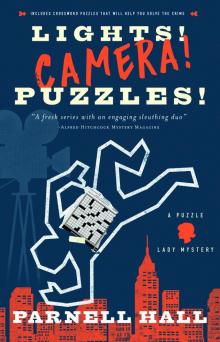 Lights! Camera! Puzzles!
Lights! Camera! Puzzles!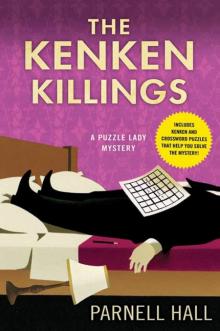 The KenKen Killings
The KenKen Killings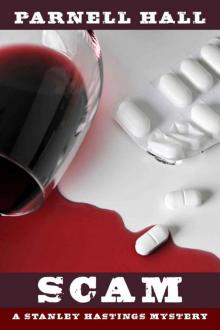 12-Scam
12-Scam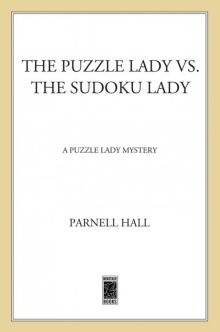 The Puzzle Lady vs. the Sudoku Lady
The Puzzle Lady vs. the Sudoku Lady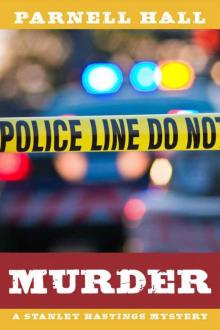 2 Murder
2 Murder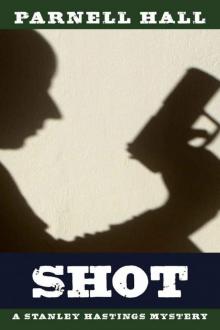 7 Shot
7 Shot You Have the Right to Remain Puzzled
You Have the Right to Remain Puzzled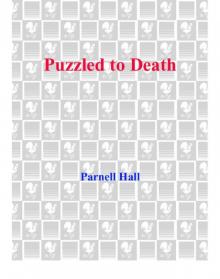 Puzzled to Death
Puzzled to Death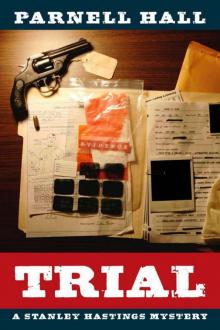 11-Trial
11-Trial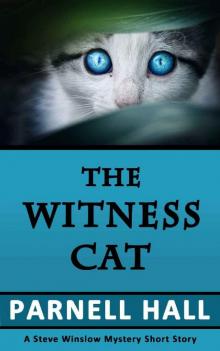 The Witness Cat (Steve Winslow Mystery)
The Witness Cat (Steve Winslow Mystery)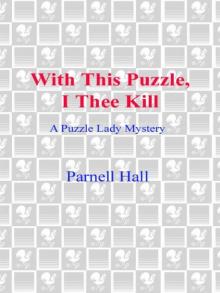 With This Puzzle, I Thee Kill
With This Puzzle, I Thee Kill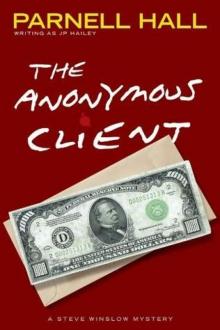 The Anonymous Client sw-2
The Anonymous Client sw-2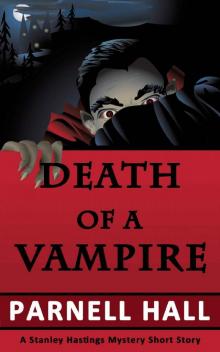 Death of a Vampire (Stanley Hastings Mystery, A Short Story)
Death of a Vampire (Stanley Hastings Mystery, A Short Story)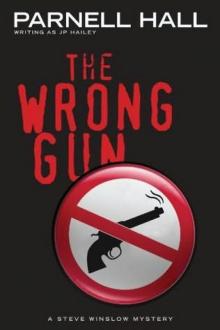 The Wrong Gun sw-5
The Wrong Gun sw-5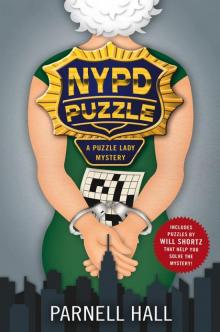 NYPD Puzzle
NYPD Puzzle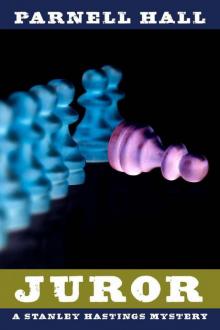 6 Juror
6 Juror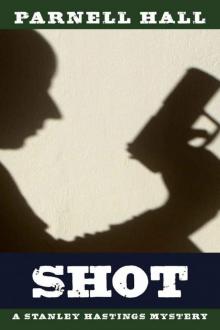 07-Shot
07-Shot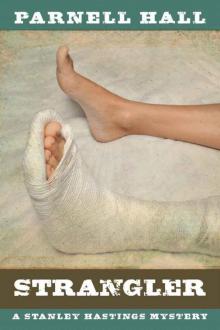 04-Strangler
04-Strangler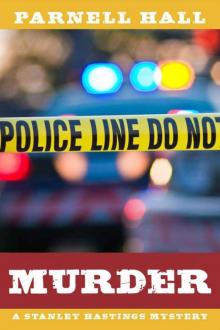 02-Murder
02-Murder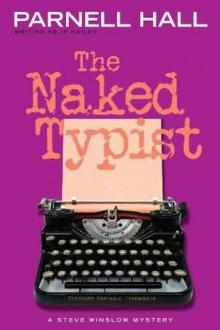 SW04 - The Naked Typist
SW04 - The Naked Typist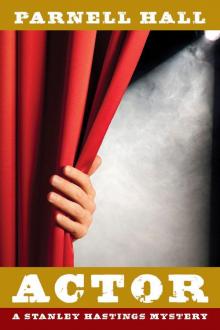 Actor
Actor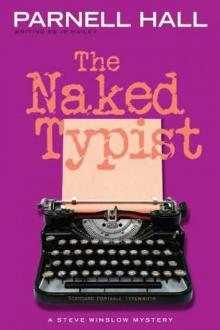 The Naked Typist sw-4
The Naked Typist sw-4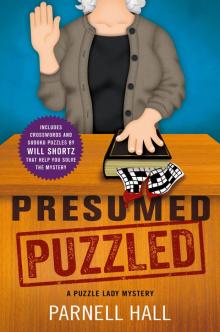 Presumed Puzzled
Presumed Puzzled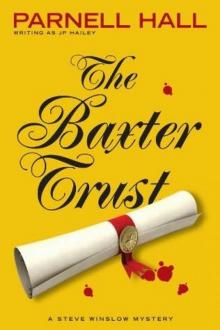 SW01 - The Baxter Trust
SW01 - The Baxter Trust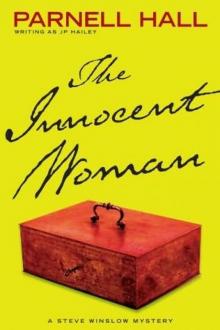 SW06 - The Innocent Woman
SW06 - The Innocent Woman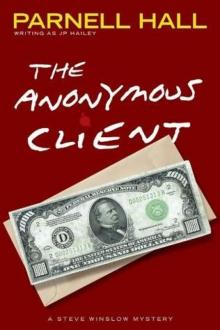 SW02 - The Anonymous Client
SW02 - The Anonymous Client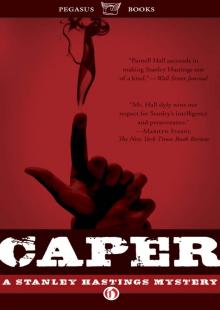 Caper
Caper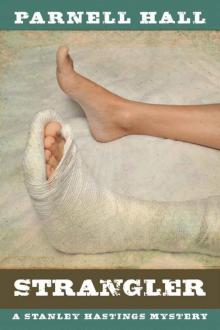 4 Strangler
4 Strangler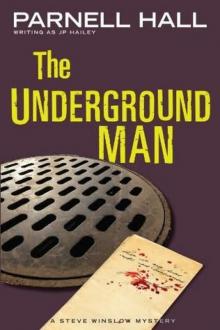 The Underground Man sw-3
The Underground Man sw-3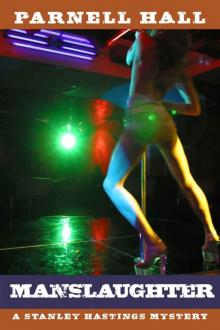 Manslaughter (Stanley Hastings Mystery, #15)
Manslaughter (Stanley Hastings Mystery, #15)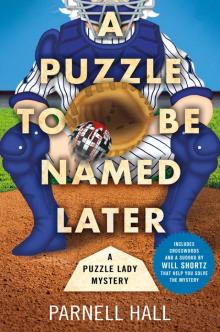 A Puzzle to Be Named Later--A Puzzle Lady Mystery
A Puzzle to Be Named Later--A Puzzle Lady Mystery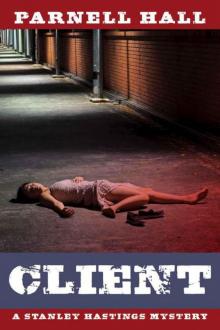 05-Client
05-Client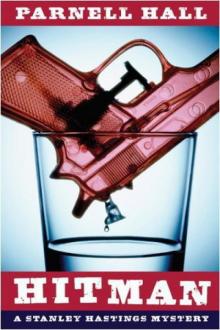 16 Hitman
16 Hitman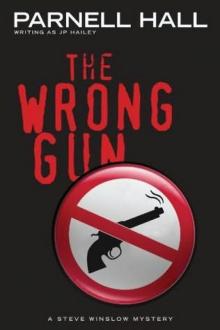 SW05 - The Wrong Gun
SW05 - The Wrong Gun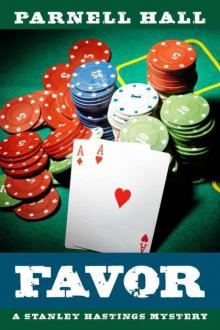 3 Favor
3 Favor Last Puzzle & Testament
Last Puzzle & Testament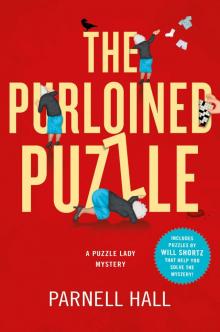 The Purloined Puzzle
The Purloined Puzzle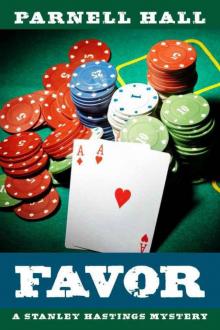 03-Favor
03-Favor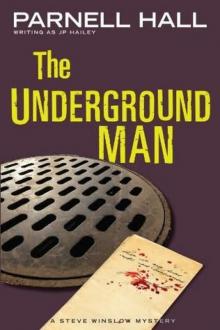 SW03 -The Underground Man
SW03 -The Underground Man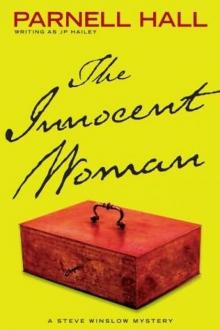 The Innocent Woman sw-6
The Innocent Woman sw-6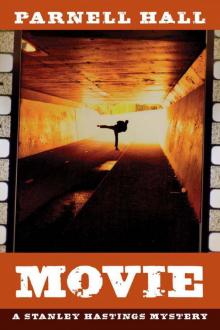 10 Movie
10 Movie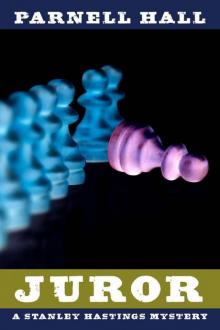 06-Juror
06-Juror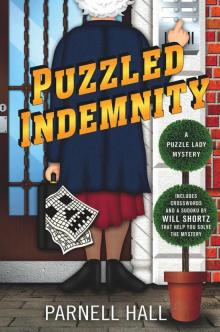 Puzzled Indemnity
Puzzled Indemnity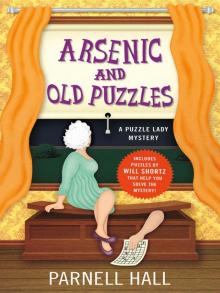 Arsenic and Old Puzzles
Arsenic and Old Puzzles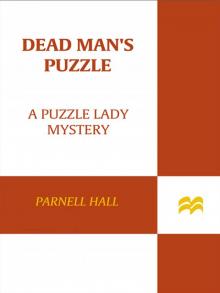 Dead Man's Puzzle
Dead Man's Puzzle Safari
Safari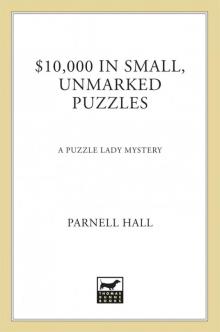 $10,000 in Small, Unmarked Puzzles
$10,000 in Small, Unmarked Puzzles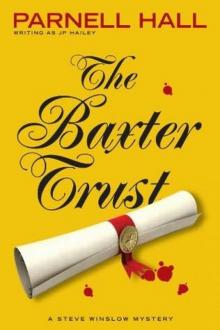 The Baxter Trust sw-1
The Baxter Trust sw-1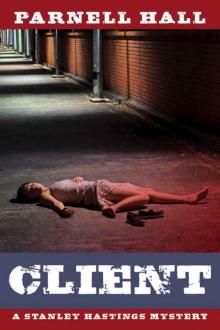 5 Client
5 Client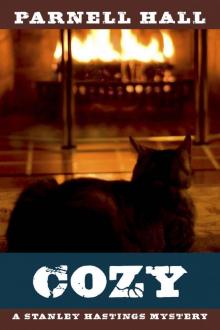 Cozy (Stanley Hastings Mystery, #14)
Cozy (Stanley Hastings Mystery, #14)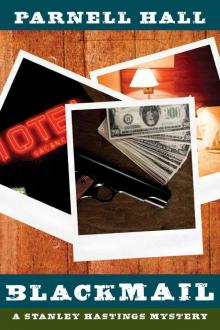 Blackmail
Blackmail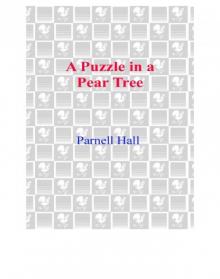 A Puzzle in a Pear Tree
A Puzzle in a Pear Tree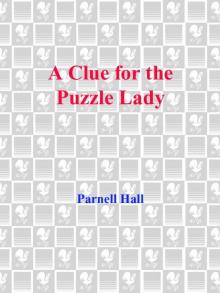 A Clue for the Puzzle Lady
A Clue for the Puzzle Lady Clicker Training (Stanley Hastings Mystery, A Short Story)
Clicker Training (Stanley Hastings Mystery, A Short Story)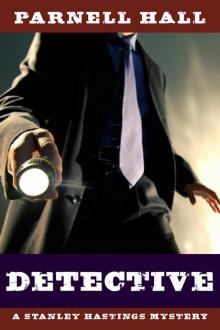 Detective (Stanley Hastings Mystery Book 1)
Detective (Stanley Hastings Mystery Book 1)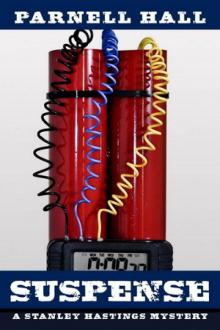 13 Suspense
13 Suspense